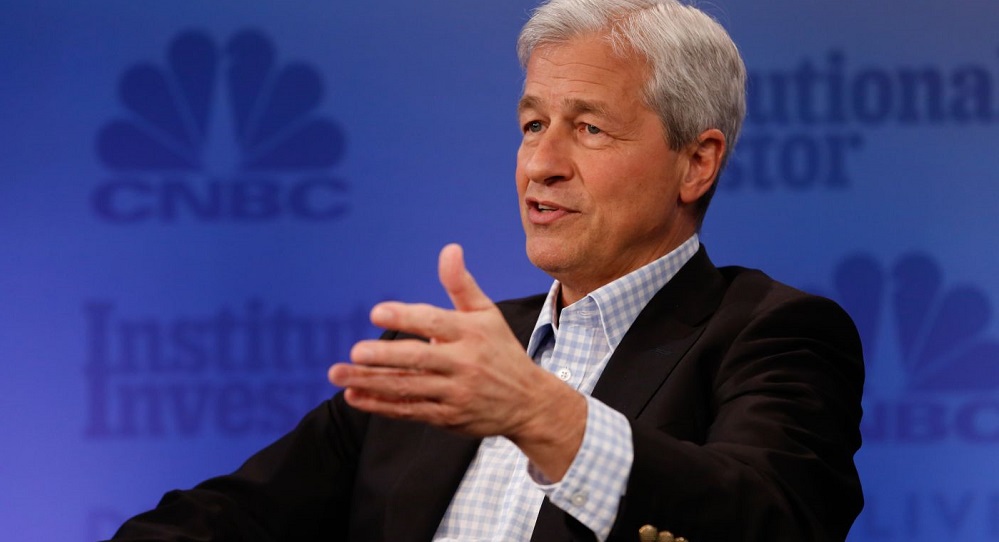By
DAN PENDER

“An economy that serves all Americans.”
That isn’t the slogan of a prospective US Presidential candidate. Rather, they’re the words of the Business Roundtable, an exclusive CEO-only group comprising leaders from the world’s largest companies.
This week, the group published its new statement of purpose, detailing its ‘modernised’ principles of corporate governance. Since 1978, and periodically thereafter, the Business Roundtable’s governance principle has followed economist Milton Friedman’s doctrine, that “there is one and only one social responsibility of business…to increase its profits”. According to it, one stakeholder takes precedence above all others: the shareholder.
This week, the Business Roundtable ripped up the Friedman doctrine. In its place is a commitment to lead their companies for the benefit of ‘all’ stakeholders—customers, employees, suppliers, communities, and shareholders.
The signatories (all 181 of them) are a who’s who of global business leaders. They include Jamie Dimon of JPMorgan Chase, Amazon CEO (and richest man on Earth) Jeff Bezos, Apple chief Tim Cook, Michael Dell of Dell Technologies, and Mary Barra, the chairwoman and CEO of General Motors.
These are serious people whose words and actions matter. They answer to some of the most lucrative pension, private equity, and wealth management investors in the world, but the language they’ve chosen to communicate with them, and the wider world, could not be further from traditional corporate speak:
“…We know that many Americans are struggling. Too often hard work is not rewarded, and not enough is being done for workers to adjust to the rapid pace of change in the economy. If companies fail to recognise that the success of our system is dependent on inclusive long-term growth, many will raise legitimate questions about the role of large employers in our society.”
So, what’s going on? Are business leaders going soft? Have the virtue-signalling insurgents taken control of the building? Or is it all (to use that horrible term) just a ‘PR stunt’?
None of the above.
What is happening is something we regrettably don’t see enough: leaders leading.
These CEOs are confronting business realities. Their decision to demonstrably re-position their companies provides a fresh foundation for engagement. Crucially, it is decision anchored by a strategy that, with the right tactics and commercial execution, provides a basis to meaningfully relate to all stakeholders.
As we’ve stated in this publication on more than one occasion, the best business leaders, the ones who have a track record of sustained success, are comfortable being uncomfortable. They know that change is inevitable, and that seeking to lead rather than resisting change is always preferable.
They value engagement, including with those that may not necessarily like them (and often loathe them). They also know that, as decision makers, you can’t please all of the people all of the time.

People over numbers
Shareholders, in the main, are numbers concerned with numbers. We never really know who they are. They are short-termists, focused on today’s share price, this quarter’s performance, and annual savings.
Contrast this with the CEO’s role. The CEO has multiple stakeholders to consider, each with their own expectations, needs, and asks. They must plot a strategic vision for success, one that, if it is to be realised, requires motivating teams, generating support, and taking decisions.
As the face, name, and embodiment of the business, there is no hiding place. The often conflicting demands of short- and long-term goals must be balanced. Scrutiny is intense. Pressure is a constant. And, as the Business Roundtable’s mantra demonstrates, the factors driving that pressure have changed fundamentally.
Earlier this year, Larry Fink, boss of global investment company BlackRock and one of the Business Roundtable signatories, wrote about how society is increasingly looking to companies to address pressing social and economic issues.
The stakeholders that make up society ‘expect’ certain behaviours, practices and values. The modern consumer wants to know more about the origin of the goods and services that they purchase. Professionals want more than just the nine-to-five. Legislators demand companies give as well as take. Ordinary people grappling with an increasing cost of living are increasingly likely to take a stand.
These new realities are forcing business leaders into territory that they are not always equipped to navigate. Those who do best are the ones who are leading rather than reacting. The Business Roundtable are doing just that; they are pushing against short-term, narrow obsessions and instead advocating longer-term, broader governance mind-sets.
The Business Roundtable has taken an important step forward in recognising the dynamics that are now very much in play. Instead of being at odds with their employees, communities or regulators, they are committing to shared success for all.
While words matter, actions matter even more. The CEOs who have signed up to this new governance principle will be analysed and scrutinised by their stakeholders to see if and how they put this commitment into practice. In the meantime, they have a new platform from which they can own their reputation and do what they are paid to do: lead.
DAN PENDER
Founder and Managing Director of PR360, Dan’s career spans business, politics and professional representation. He has overseen the agency’s rapid growth, developing a premier client portfolio and a talented team of professionals.

